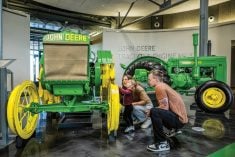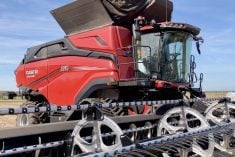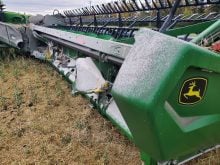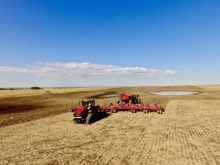Should I lease or buy my next combine?
Ask most people why they want to lease equipment and they’ll say “for tax purposes.” But that’s not the best reason for leasing, say the experts.
“If you’re leasing a combine for $10,000 a year, you get an annual write-off of the full $10,000 a year over the life of the lease. If you buy a $100,000 combine, you can only deduct interest paid, plus 30 per cent of the cost annually (15 per cent in the year of purchase), on a declining balance,” says Matt Bolley, a business advisor with MNP. “On a $100,000 combine purchase, the first year you’d deduct $15,000 of depreciation, and in subsequent years, you’d deduct 30 per cent of the remaining balance. Either way, you will eventually fully deduct the value of that combine, but it will take longer if you buy than if you lease.”
Read Also
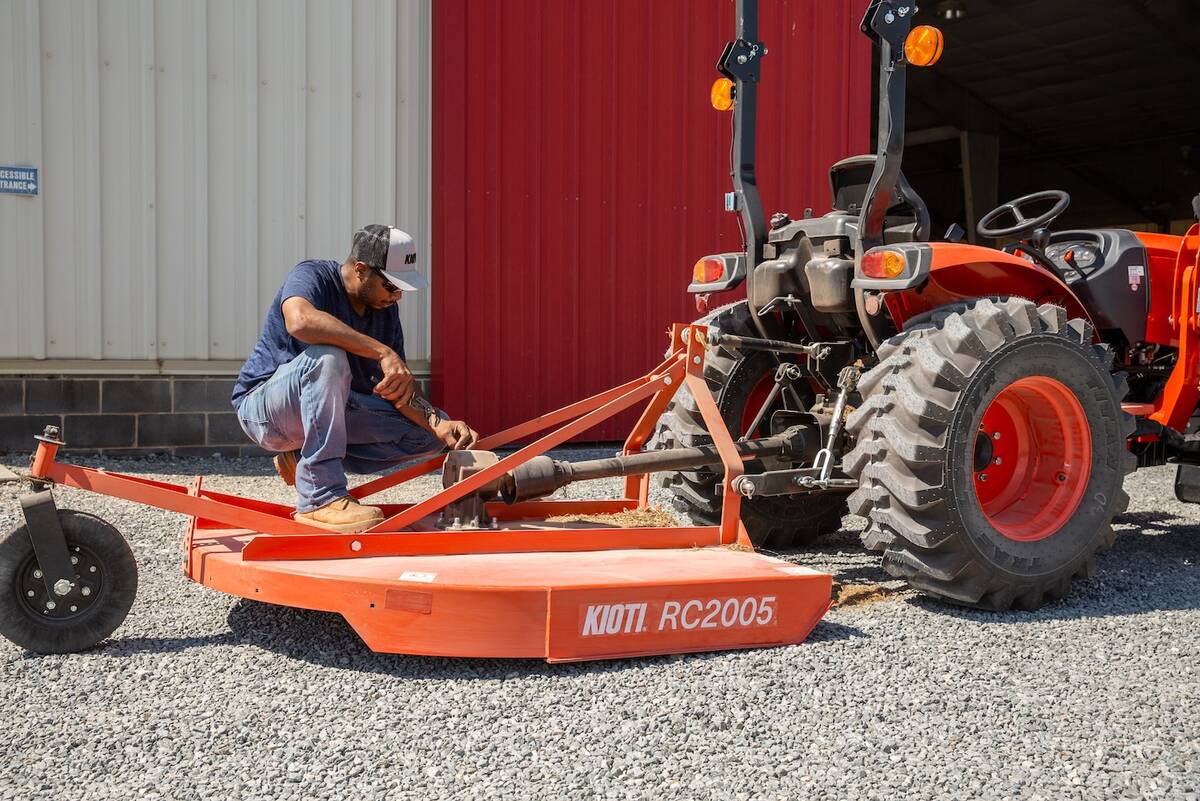
Store that seasonal-use equipment properly
Owners of small seasonal equipment may believe autumn maintenance isn’t needed if a machine will be kept out of the harsh elements over winter — only to find unexpected problems come spring.
Both leasing and purchasing can have a fit on your farm but it depends on the financing or lease options available, the type of equipment, how it’s used, and your financial position.
“A lease is just another way to finance 100 per cent of an asset,” says Saskatchewan chartered accountant, Lance Stockbrugger. “If you buy, typically you have to put a 25 per cent cash down payment. If you don’t have the cash, or aren’t trading in an asset, leasing can help your cash flow because it’s a lower cash outlay, lower upfront cash requirement than buying the asset would be.”
Equity or turnover
Leasing may be a good option for farmers who replace their equipment often. “If your sprayer, which gets a lot of use, is wearing out quickly, if you lease it you know every two or three years you’re getting a new one that will be reliable,” says Stockbrugger. “If, on the other hand, you have equipment you don’t use as much, like a four-wheel drive tractor, you could build some equity by buying it, because that equipment will be worth a premium because it doesn’t have many hours on it.”
With a weak Canadian dollar, good quality used equipment is at a premium today, which is possibly another good reason for owning it, but if the dollar goes the other way leasing takes away the risk of the equipment’s value going down, adds Stockbrugger.
No one is suggesting that every-one lease their sprayer and buy their combine. Farmers should analyze each transaction on a case-by-case basis, considering the farm’s tax and financial situation.
It still sometimes comes down to personal preference, says Dan East of Farm Credit Canada. “A lot of farmers like to own the equipment they’re using,” he says. “But it’s important to go through the payment scenarios of loan versus lease, and figure out the cost per acre for that machine and make sure the option you choose is the best fit for your farm.”
Avoid the Traps
There are some traps with leasing that people can fall into if they’re not careful. One is pre-paid leases. Most farmers are on a cash accounting basis, and are used to writing off expenses in the year they pay them, but if they prepay a five-year lease they can’t write that full amount off in the first year. “They can only write off the first two years and the rest gets amortized over the life of the lease,” says Stockbrugger.
Recaptured lease payments can also result in unexpected, taxable income. As an example, a farmer buys out a piece of equipment at the end of the lease for $25,000, but the value of that used equipment has risen to $45,000. The farmer sells it, expecting to pay tax on the additional $20,000 as capital gains. “But that’s not a capital gain, that is considered recaptured lease payments and that $20,000 will be added back in as straight income,” says Stockbrugger.
Too good to be true?
Read the fine print carefully and don’t be dazzled by offers, whether they’re buy or lease, that look too good to be true, adds East. “Just like any other contract it’s important to understand the details, and the responsibilities involved in the lease or sale,” he says.
Zero interest, for example, can be misleading. In some cases the dealer might have too much inventory they wants to offload so they might offer zero per cent financing at no cost to the customer. “Other times that cost might be built in so the customer is getting zero per cent financing on the rate, but the interest is built into the price, so that $400,000 combine is actually costing $420,000,” says East. “It never hurts to get a trusted partner, like your accountant or lending institution to review the deal with you.”





